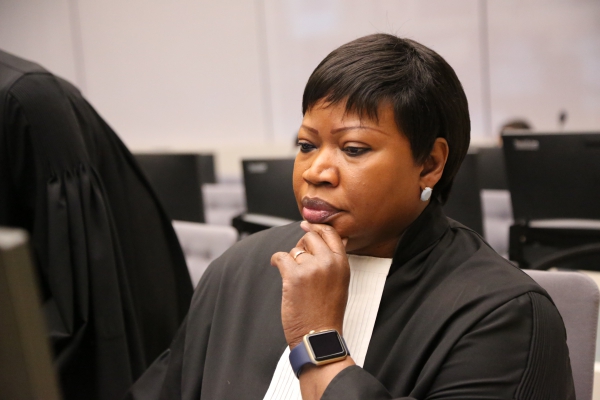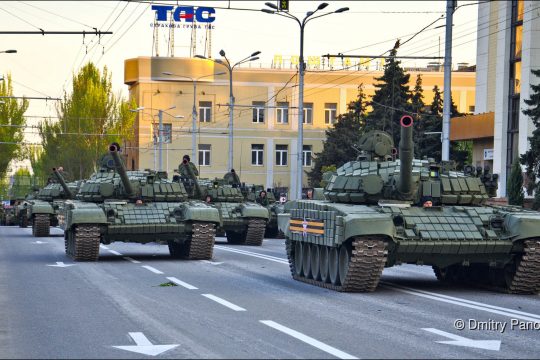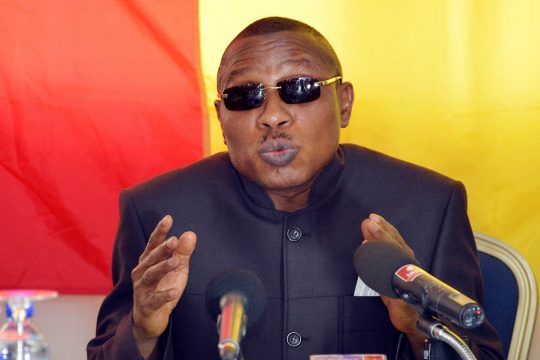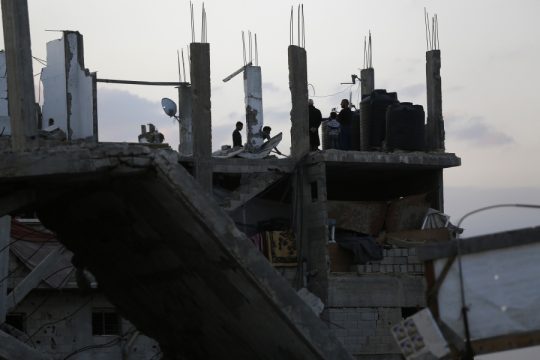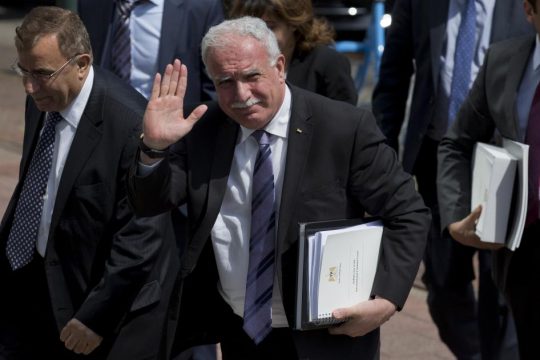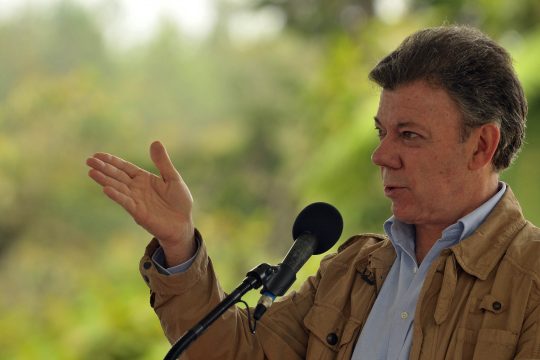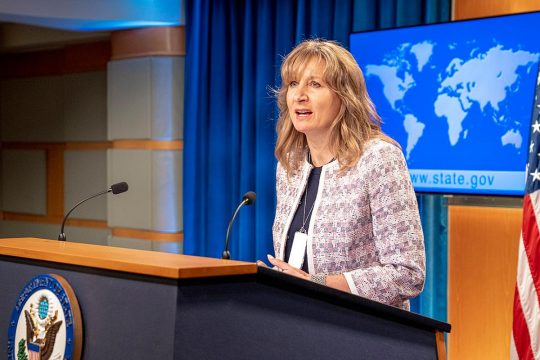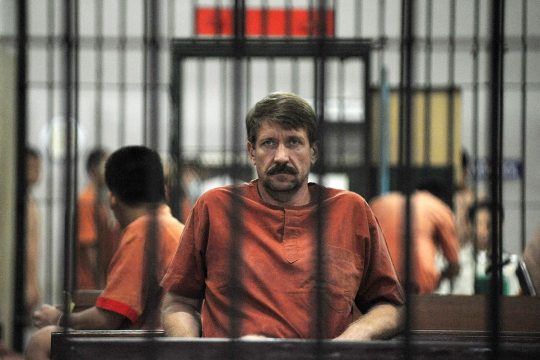The Prosecutor of the International Criminal Court (ICC) has just released an annual report on her preliminary examinations. For the moment , Fatou Bensouda has not announced that she is opening any new investigation or closing any case, but she is expected to announce a decision “in the very near future” with regard to preliminary examinations under way on Afghanistan and the Gaza flotilla. The report, published on the eve of the ICC Assembly of States Parties, also describes progress in the eight other situations under examination: Gabon, Burundi, Palestine, Ukraine, Iraq, Guinea, Nigeria and Colombia.
The big advance in preliminary examinations concerns Afghanistan. The Prosecutor is expected to decide “in the very near future” whether or not she will open an investigation in this case. But the long list of crimes against humanity recorded suggests that she will. Several sources in The Hague say she is likely to file a request to the judges before the end of the year. If the judges authorize the Prosecutor to open an investigation – a decision which could take several months --, she is expected to focus first on crimes committed by the Taliban. Since 2007, 17,000 civilians have died in attacks by the Taliban and their supporters, according to the report. These crimes were “allegedly committed as part of a widespread and/or systematic attack against civilians perceived to support the Afghan government and/or foreign entities, or to oppose Taliban rule and ideology, including women and girls”.
The Prosecutor’s office has also been looking at acts of torture committed by the police and intelligence services in Afghan prisons since 1978 that are still unpunished. The report adds, nevertheless, that these crimes were committed at local rather than national level.
In her previous reports, the Prosecutor had already included war crimes committed by American forces in Afghanistan. This time she says clearly that crimes committed in secret CIA prisons in Poland, Romania and Lithuania, where suspected members of Al Qaeda and the Taliban were allegedly transferred from Afghanistan, also fall within her jurisdiction.
Crimes approved by top US officials
Fatou Bensouda says there is a reasonable basis to believe that “members of the US armed forces and the US Central Intelligence Agency (“CIA”) resorted to techniques amounting to the commission of the war crimes of torture, cruel treatment, outrages upon personal dignity, and rape”. The preliminary examination identifies 88 victims of such crimes as of May 1, 2003, committed by the CIA and armed forces. The secret prisons, which came to light in 2005, were the subject of an investigation by the Council of Europe. In June 2007, Swiss Senator Dick Marty said the system of secret prisons was an “international spider’s web”. Several European countries closed their eyes to CIA activities on their territory, including Poland, Romania and Lithuania, States Parties to the ICC, which means it has jurisdiction to investigate crimes committed on their territory. Bensouda asks that they provide additional information for possible future investigations.
Since the Court can only intervene if national jurisdictions are “unwilling or unable”, Bensouda has not yet opened an investigation. But in order for her to decide against, national prosecutions need to target the same crimes and target the leaders rather than just those who carried out the orders. Bensouda also sets the bar high, saying that “the gravity of the alleged crimes is increased by the fact that they were reportedly committed pursuant to plans or policies approved at senior levels of the US government, following careful and extensive deliberations”, and that there is a reasonable basis to believe these crimes “were committed in furtherance of a policy or policies aimed at eliciting information through the use of interrogation techniques involving cruel or violent methods which would support US objectives in the conflict in Afghanistan”. The Prosecutor says that according to her information, there has been no conclusive investigation in the United States.
Iraq on a back-burner
At a time when three African States – Burundi, South Africa and Gambia – have announced they are pulling out of the ICC, accusing the Court of targeting only Africans, the report presents a wider view of the Prosecutor’s work. With regard to Burundi, Bensouda stresses that the country’s withdrawal from the Rome Treaty of the ICC will only become effective on October 27, 2017, i.e. one year after it was notified to the UN Secretary General by Bujumbura. The Prosecutor indicates that she could open an investigation in the meantime, and that until then Burundi has an obligation to cooperate.
In this annual report, traditionally published just before the ICC Assembly of States Parties, which starts this year on Wednesday November 16, the Prosecutor also covers Iraq, but in a rather played-down fashion. Baghdad has not ratified the Rome Treaty of the ICC, which means the Court has jurisdiction only over crimes committed by citizens of Member States. In May 2014, Bensouda reopened the examination, which had been closed by her predecessor, on torture committed by British soldiers in Iraq. “On the basis of the information made available by PIL [Public Interest Lawyers] and ECCHR [European Center for Constitutional and Human Rights] , the Office has categorised more than 25 of the most frequently reported methods of abuse executed by more than allegedly 140 means,” says the report. It gives a long litany of torture techniques, including sensory deprivation, sensory over-stimulation, deprivation of clothes, deprivation of food, deprivation of medical care, etc. Twenty-one prisoners are also recorded as having been subjected to rape and sexual violence. The Gambian Prosecutor says that she has received “full cooperation from relevant stakeholders”, including British authorities and NGOs, and taken into account the Chilcot report, published in London in July, which concluded that the 2003 intervention in Iraq “was not inevitable”. The Prosecutor, who is not drawing any conclusions for the moment, indicates that investigations by the Iraq Historic Allegations Team are still under way.
The sensitive case of Palestine
Palestine is one of the most sensitive cases currently on the ICC Prosecutor’s desk. Following a request from Ramallah after Palestine became a member of the Court in early 2015, Bensouda opened a preliminary examination into crimes committed in Gaza during “Operation Protective Edge” in summer 2014. “All parties are alleged to have committed crimes during the 51-day conflict,” writes the Posecutor. Palestinian groups, including Hamas, are suspected of having launched mortar attacks around Gaza and Tel Aviv, having used civilians as human shields during Israeli attacks, and inflicted abuses on civilians suspected of collaborating with Israel. Israeli defence forces are also suspected of attacking civilians, medical staff and infrastructure, and UN buildings. The Prosecutor is also looking at the Israeli settlements, but has not so far reached a conclusion on any of these issues. She says that she will continue to “assess information on potentially relevant national proceedings, as necessary and appropriate”. Even if the Prosecutor does not appear to have cooperation from Israel, one of her teams was nevertheless able to go there in October, although without conducting any investigations. For Tel Aviv, Palestine is not a State and therefore cannot request a Court investigation or be an ICC member.
Russian control over Ukrainian separatists
With regard to Ukraine, the Prosecutor is to start verifying if procedures have been started by national judicial authorities. Ukraine is not a member of the Court, but has recognized its jurisdiction for crimes committed since November 21, 2013, when demonstrations started against the regime of former president Victor Yanukovych. After a partnership accord with Europe was rejected and in protest against the regime’s corruption, nearly three months of protests resulted in the flight to Russia of the president. In 2015, the Prosecutor reached a provisional conclusion that the events of Maidan, central square in Kiev where demonstrators gathered, constituted grave violations of human rights and not crimes against humanity. With regard to crimes committed in eastern Ukraine, Bensouda stresses the failure of the Minsk ceasefire accords, which have brought a reduction in the intensity of fighting but are violated daily. Since April 30, 2014, clashes between Ukrainian forces and volunteers opposing pro-Russian separatists in Donbass, eastern Ukraine, are said to have killed 9,500 people. The ICC Prosecutor has not yet reached a conclusion on the level of involvement of Russian forces and says her office must “assess whether the information available indicates that Russian authorities have provided support to the armed groups in the form of equipment, financing and personnel, and also whether they have generally directed or helped in planning actions of the armed groups in a manner that indicates they exercised genuine control over them”.
Colombia, Guinea and “complementarity”
Like Guinea, Colombia seems to be a real test ground for the ICC’s “complementarity” principle. In all her reports, Prosecutor Bensouda has said she is following national developments. In Colombia, her attention is focussed on the peace accord signed at the end of September between the Armed Revolutionary Forces of Colombia (FARC) and the government. The agreement, which was nevertheless narrowly rejected by the population in an October referendum, provides for a Special Court to try crimes against humanity and war crimes, and reduced sentences for those who confess their crimes.
With regard to so-called “false-positives” cases, in which Colombian forces tried to pass murdered civilians off as rebels who died in combat, the Prosecutor reports that numerous national procedures have been conducted and others are under way, but for the moment they have implicated only mid-ranking officers rather than top officials. She also mentions several judgments handed down by courts in the context of the Peace and Justice Law, notably against paramilitary forces for forced displacement of populations, and which have resulted in several convictions of senior people.
And will Guinea set up a Special Court? The ICC Prosecutor’s office has since 2010 been monitoring national investigations into the 28 September, 2009 massacre in Conakry stadium, when government forces clamped down violently on the opposition. According to Bensouda’s report, 14 people have so far been indicted in Guinea, including Captain Moussa Dadis Camara, who was president at the time following a coup d’Etat nine months before the massacre. Guinea says it hopes to open a trial in 2017. According to Fatou Bensouda, her office understands that “the Guinean authorities, civil society and other relevant partners aspire to draw lessons from the auspicious precedent set by the trial of Chad’s former president Hissène Habré, convicted in May 2016 by the Extraordinary African Chambers in Dakar”.



